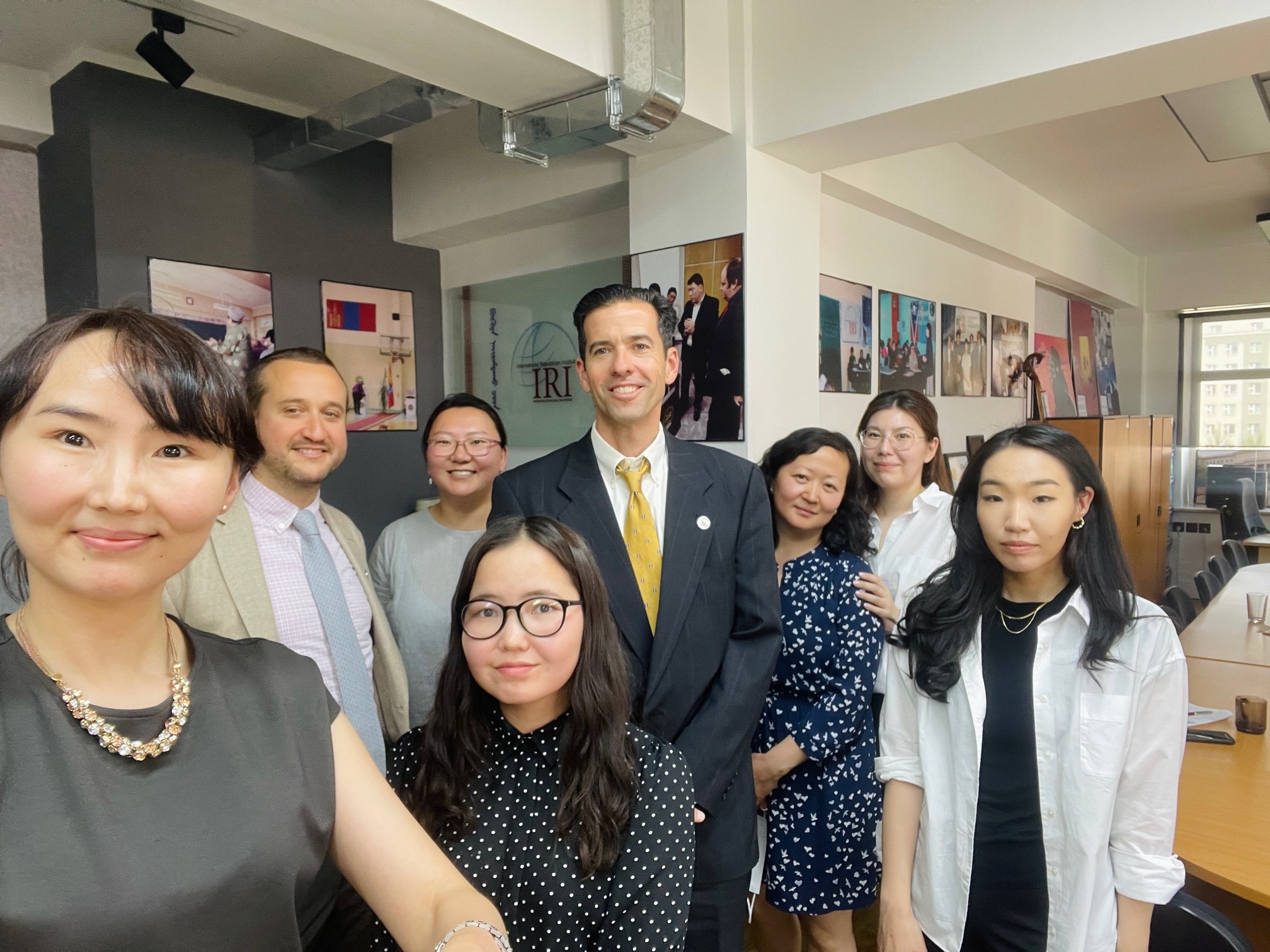IRI Marks 30 Years of Democracy Support in Mongolia: Looking Back on Successes and Challenges Ahead
Following Mongolia’s peaceful revolution in 1990, which replaced the Soviet yoke with democracy and enabled the country to pursue an independent foreign policy, the United States quickly responded by providing vital development aid. The International Republican Institute (IRI), with generous support from the National Endowment for Democracy (NED) and United States Agency for International Development (USAID), was one the first NGOs on the ground providing valuable assistance to Mongolians working to build a new democratic infrastructure on the ruins of communism. This year, IRI marks its 30th anniversary in Mongolia, providing an opportunity to reflect upon past successes as well as the evolving challenges ahead.
Starting in 1992, IRI’s work supported a competitive, democratic system to help parties become viable political organizations. IRI efforts supported the long-term institutionalization and professionalization of grassroots political parties, and today Mongolia’s system remains a testament of that transition.
With support from USAID, IRI updated its strategy to support elected officials after the first transfer of power in Mongolia in more than 70 years. Following the historic 1996 elections, IRI led technical assistance training programs for the newly elected parliamentarians on their roles and responsibilities, concentrating on procedures and rules to allow for effective legislative drafting, debate on legislation, and general oversight of government activities and reforms.
IRI spent the early 2000s in Mongolia on parliamentary strengthening initiatives and led the first technical consultations on how to hold committee hearings in the State Great Hural. Today, a committee hearing at the State Palace is a mundane procedure, but two decades ago, as Mongolia’s parliament was rapidly professionalizing, this was an innovative practice and IRI provided key support that empowered the legislature to become a more deliberative and democratic institution.
Election poll watching was also initiated in Mongolia with the support of IRI. Prior to the 2004 parliamentary elections and 2005 presidential election, IRI implemented the country’s first nationwide poll watcher training programs for members of all political parties. The impact of these trainings was illustrated by the unprecedented participation of thousands of poll watchers. Since then, party poll watchers have observed every election in Mongolia and have played a vital role in verifying free and fair elections and supporting the multiple peaceful handovers of power that have ensued.
Over the last decade, much of IRI’s work in Mongolia has shifted toward assisting civil society and working with the diverse array of NGOs that support advocacy, human rights, and citizen-responsive governance—invaluable ingredients in making democracy deliver.
As a consolidated democracy sandwiched between two authoritarian neighbors, Mongolia’s democratic success story matters to the world. With rising tensions in the region exacerbated by Russia’s unprovoked and unjustified invasion of Ukraine, it’s more important than ever that freedom-loving nations around the world stand firmly together in defense of democracy and human rights.
On June 29, IRI formally marked its 30th anniversary in Mongolia with a reception in Ulaanbaatar, which featured special guests from Washington, DC. The event included IRI President Daniel Twining, a visiting STAFFDEL from the House Democracy Partnership (HDP), and a large and diverse network of Mongolian stakeholders. The 30th anniversary celebration provided a moment to gather, reflect, and celebrate the tangible achievements and long-term impact. However, it remains evident that in a world where the pandemic has tested institutions everywhere, and authoritarian and illiberal actors continue to undermine global norms and democratic values, IRI’s work in Mongolia, and the continued support of donors like NED and USAID, remains as important as ever.

